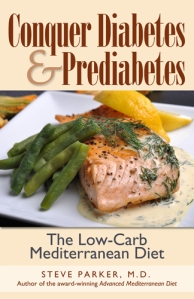
The traditional Mediterranean diet has long been linked to lower risk of certain cancers, particularly colon, breast, uterus, and prostate cancer. That’s one reason the diets usually ranked as the #1 healthiest diet in the U.S. News and World Report’s annual diet survey. A new study of a Netherlands population suggest that the anti-cancer benefit applies only to women. From a 2020 issue of the Journal of the Academy of Nutrition and Dietetics:
In this NLCS analysis, sex-specific associations of a priori defined Mediterranean diet adherence with risks of overall cancer and cancer subgroups defined by relations with 3 major cancer risk factors (tobacco smoking, obesity, and alcohol consumption) were investigated. In women, middle compared with low aMEDr values [alternate Mediterranean diet score without alcohol] were significantly associated with a reduced risk of overall cancer and the majority of the cancer subgroups investigated. Other associations in women were not statistically significant after full adjustment for confounding, but all estimates were below 1. No association was observed between aMEDr and risk of overall cancer or any of the cancer subgroups in men. Inclusion of alcohol in the Mediterranean diet score diminished the model performance.
Even though the association of Mediterranean diet adherence with overall cancer risk is comprised of a combination of potentially diverging associations with individual cancer (sub)types, overall cancer risk is an interesting end point for epidemiological studies. It provides insight in the overall possible benefits of Mediterranean diet adherence and the potential of the Mediterranean diet as a dietary strategy for cancer prevention. Findings of previously conducted prospective studies evaluating the relation between a priori defined Mediterranean diet adherence and overall cancer risk have been inconclusive and were rarely specified by sex.
A priori defined Mediterranean diet adherence has previously significantly been associated with a reduced overall cancer risk in the total European Prospective Investigation into Cancer and Nutrition (EPIC) cohort as well as the Greek EPIC cohort.9,10 Comparing the highest with the lowest Mediterranean diet adherence category in the total EPIC cohort, HRs (95% CIs) of 0.93 (0.88-0.99) and 0.93 (0.89-0.96) were observed for men and women, respectively. Although inverse associations were also suggested for both sexes in the Greek EPIC cohort, only effect estimates obtained in women reached statistical significance (HRhigh vs low [95% CI]: 0.83 [0.63-1.09] for men and 0.73 [0.56-0.96] for women). In addition to the previously mentioned EPIC studies, weak inverse associations between Mediterranean diet adherence and overall cancer risk were observed in men (HRper tertile increase [95% CI]: 0.97 [0.94-1.01]) and women (HRper tertile increase [95% CI]: 0.97 [0.93-1.00]) participating in the Swedish prospective Västerbotten Intervention Programme. In the present analysis of the NLCS cohort, a priori defined Mediterranean diet adherence was not associated with overall cancer risk in men. In regard to women, although the multivariable-adjusted associations in female NLCS participants were not statistically significant in most cases, effect estimates were stronger inverse than those observed for women in the total EPIC cohort, which did reach statistical significance possibly due to the larger number of cases. Additional cohort studies in Germany and France have investigated the association between Mediterranean diet adherence and overall cancer risk in men and women together and did not observe an association. Besides the prospective cohort evidence, a reduced overall cancer risk (borderline significant, P = .05) was indicated in patients with coronary heart disease who followed an α-linolenic acid-rich Mediterranean-type diet as opposed to a control diet close to the step 1 prudent diet of the American Heart Association in the randomized Lyon Diet Heart Study. However, results should be interpreted with caution because they were based on only 24 incident cancer cases.
At least we still have unequivocal evidence for the cardiovascular, longevity, and anti-dementia properties of the Mediterranean diet. Or do we?
Steve Parker, M.D.












